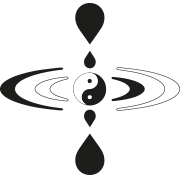by Jeannette Kennedy, M.Sc. Registered Psychologist
We all struggle with situations, experiences, and emotions from time to time. Our goal is to ease, change, or simply get through, our situation, but paradoxically, at times, we negatively intensify our experience
Willingness is responding to a situation in terms of what the situation requires (being effective); willfulness, on the other hand, is responding based on one’s individual needs (being right).
In Dr. Marsha Linehan’s DBT’s distress tolerance module, the concept of willingness versus willfulness is one of the skills to help approach situations from a WISE MIND perspective, which is a healthy balance of EMOTION MIND and RATIONAL MIND.
WILLINGNESS
- Cultivate a WILLING response to each situation
- Willingness is doing just what is effective in each situation, in an unpretentious way.
- Willingness is listening very carefully to your WISE MIND, acting from your inner self and your deepest core values.
- Willingness is becoming aware of your connection to the universe and to the person you are interacting with.
- Willingness engenders listening and mentalizing.
- Ask yourself, in 5 years from now, will the situation that causes the distress matter?
WILLFULNESS
- Willfulness is like sitting on your hands when action is needed, refusing to make changes that are needed.
- Willfulness is about the desire to be right in a situation, regardless of what is needed to get through effectively.
- Willfulness causes you to fight any suggestions that will improve the distress and thus make it more tolerable.
- Willfulness is being rigid and inflexible.
- It is the opposite of doing what works, of being effective. Willfulness is trying to fix every situation or refusing to tolerate the distressful moment.
Let’s consider a few examples. When we experience physical or emotional pain we want it to stop. Our back hurts, and we focus on the pain preventing us from accomplishing household tasks. We feel anxious and avoid going to a social event. The more we resist it, the more intense the pain or emotion feels. Alternatively, we have a disagreement with someone and feel justified in our anger refusing to consider the other person’s point of view. These are all examples of willfulness.
If we took a more willing stance, then we would be aware of out back pain and we would focus on the tasks that need to be accomplished increasing our effectiveness. We would observe our anxiety and go to the social event, and become aware that approaching rather than avoiding is what reduces our anxiety thus increasing our sense of mastery. We would listen to the other person’s point of view, and while we may still not agree, we at least have an understanding of their perspective and our anger will be less intense. We may even chose to end our relationship with that person due to the unhealthiness of the relationship.
Time and time again, I see people stuck in their position, situation, or emotions. I agree that many situations are unfair and very difficult! However, if they only realized that they are creating their own prison due to willfulness, and if they took a more willingness stance they would be freeing themselves.
Jeannatte Kennedy Blog at WordPress.com. | The Sundance Theme.
